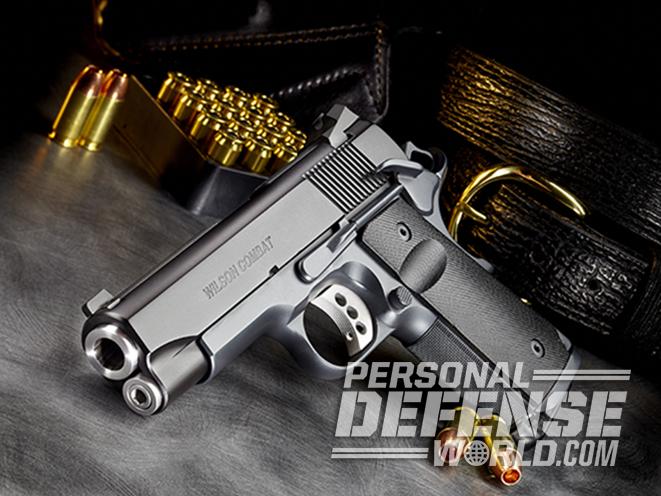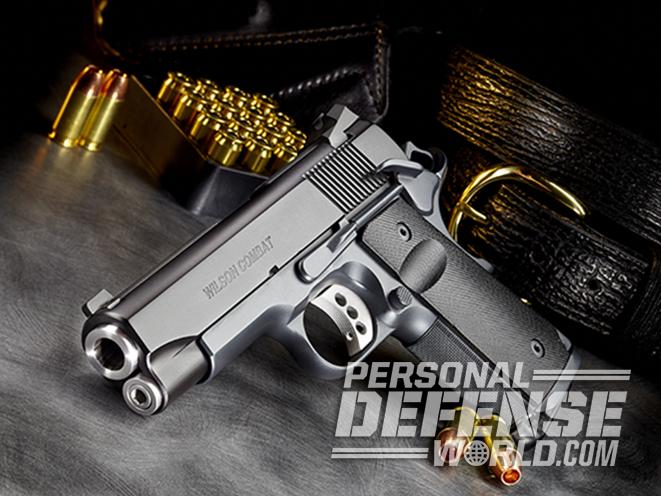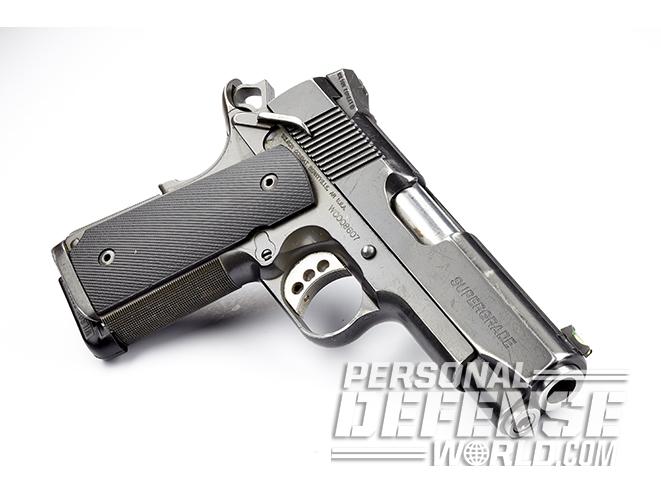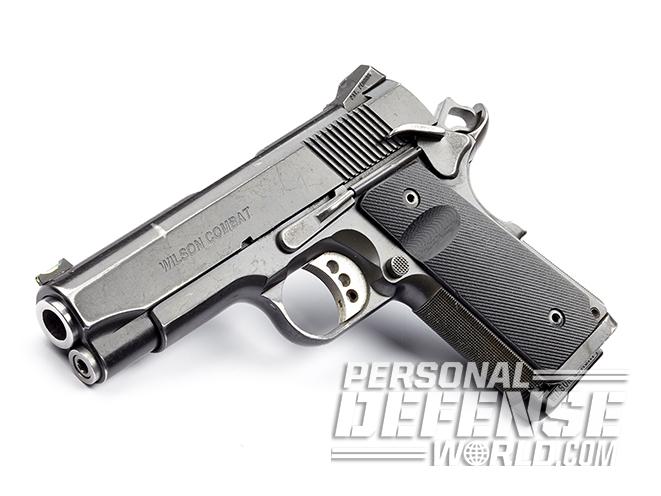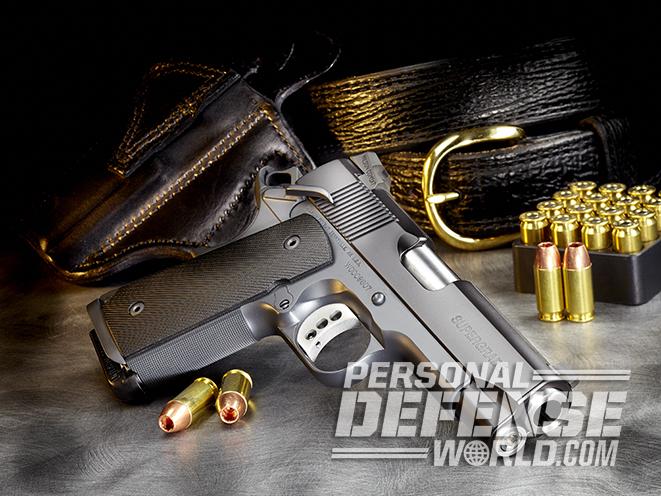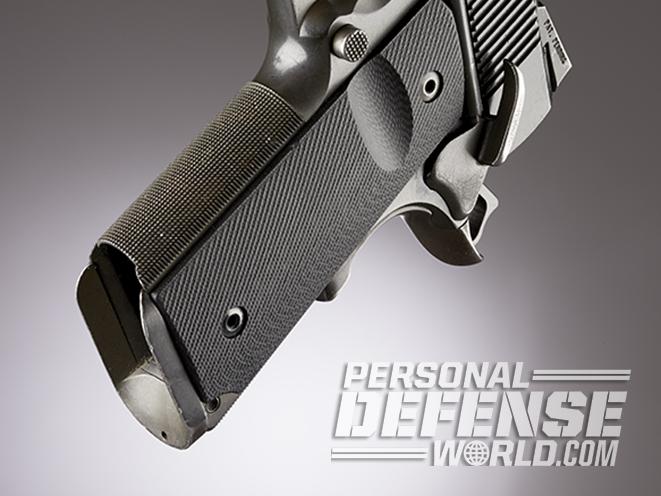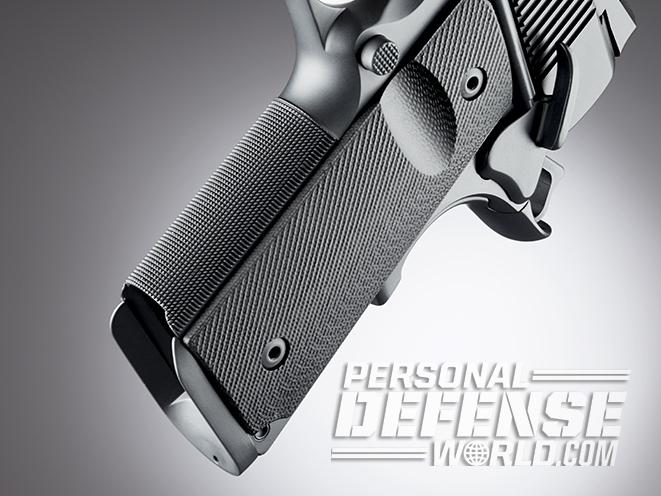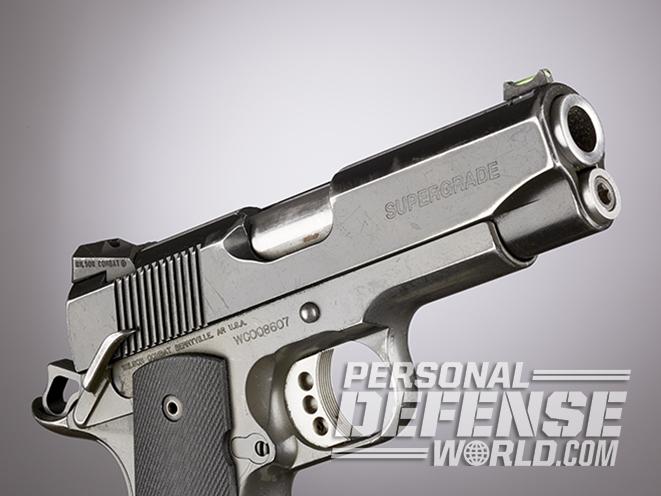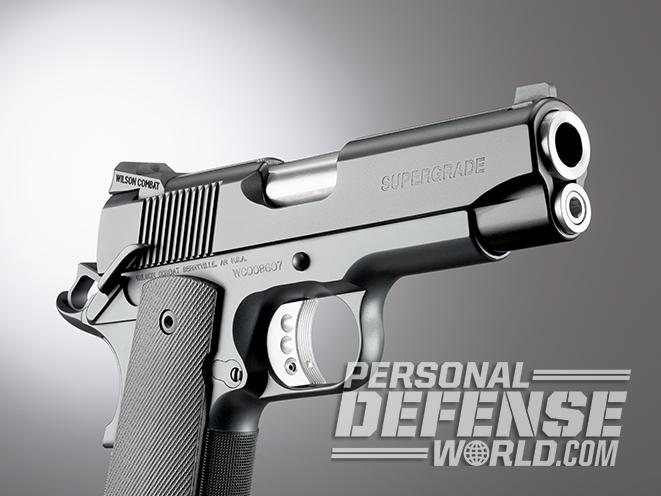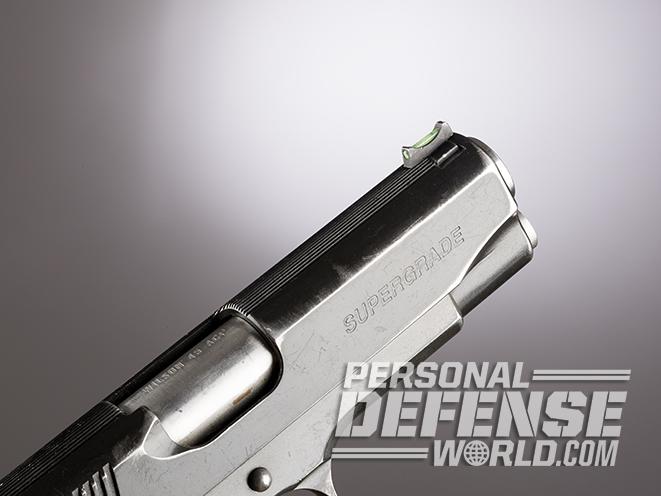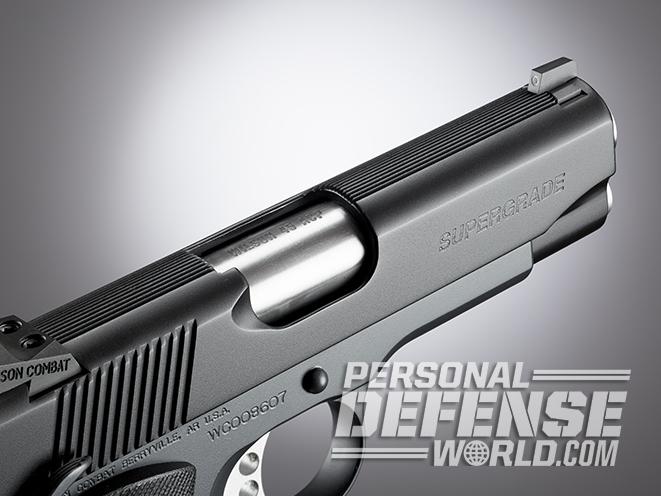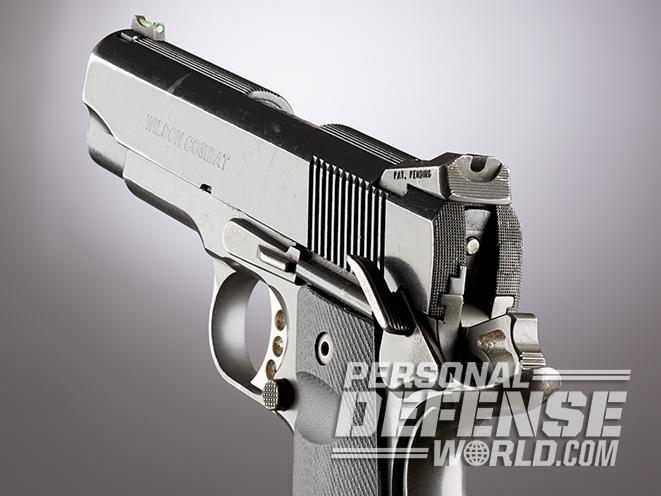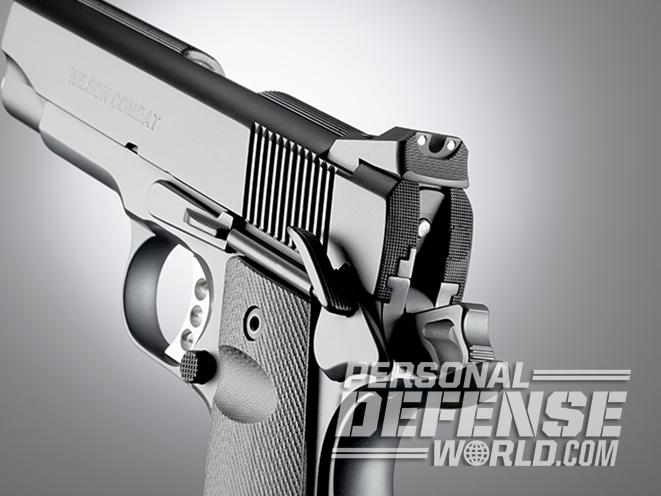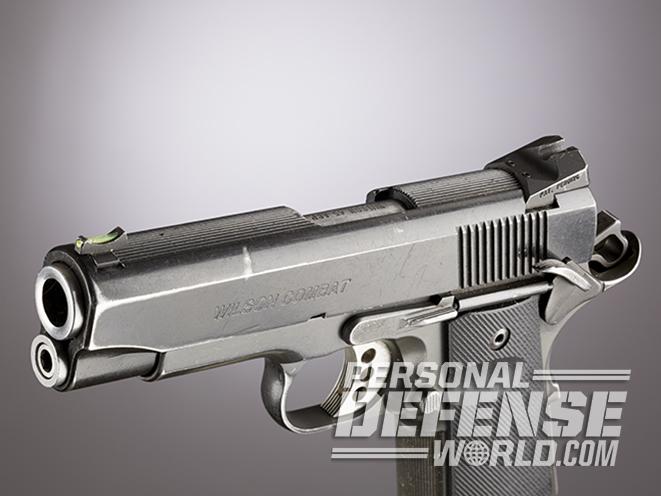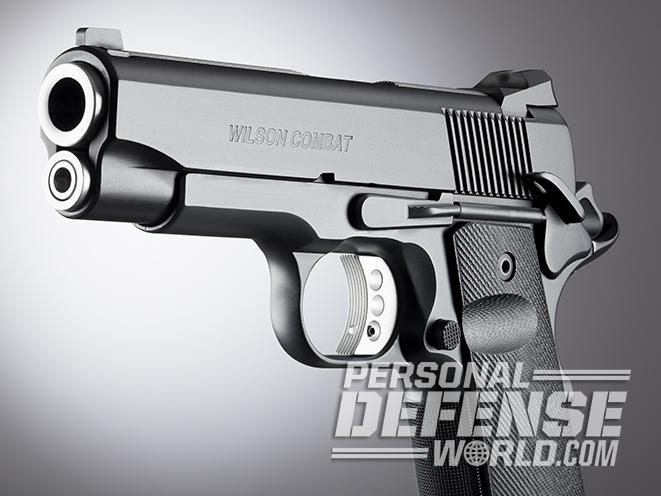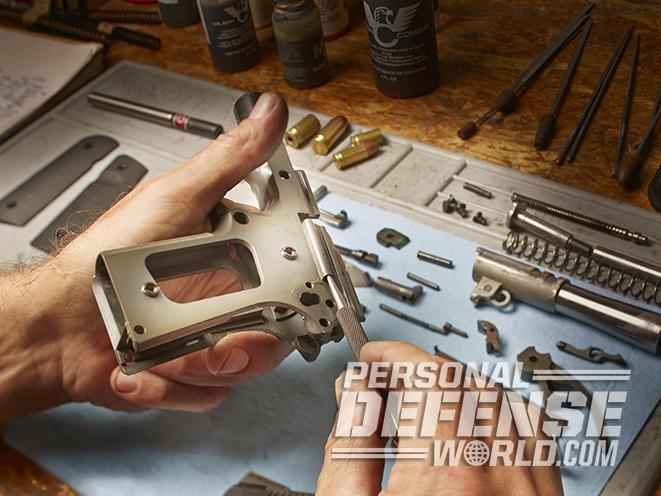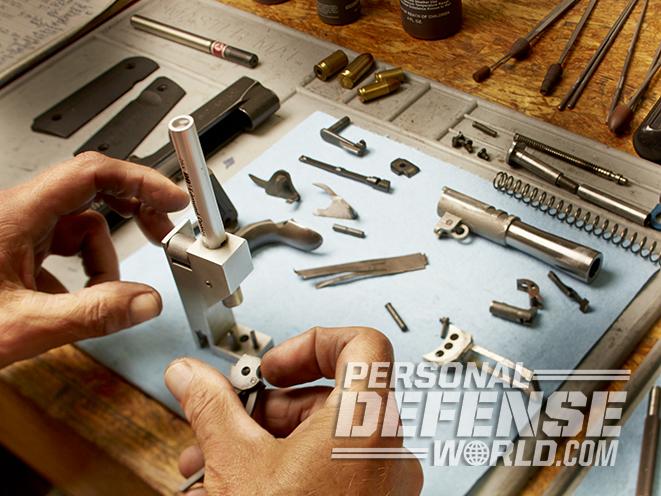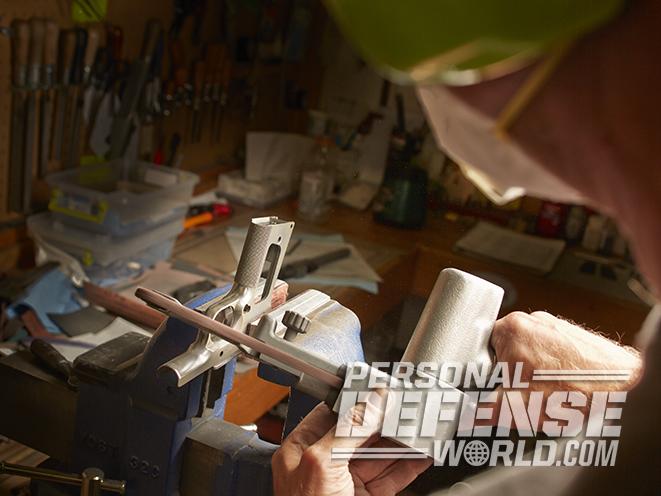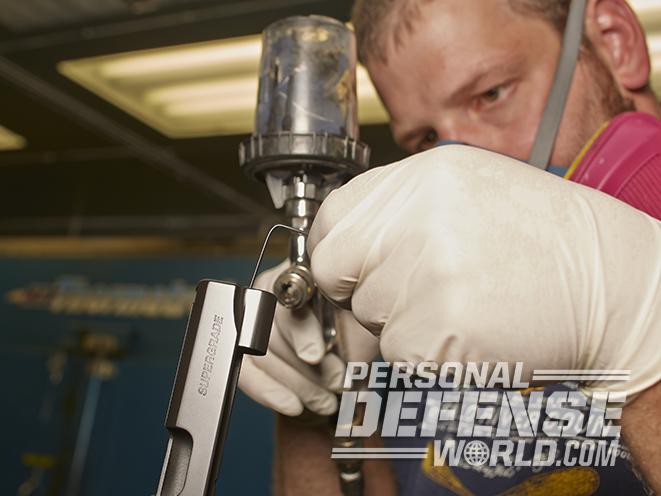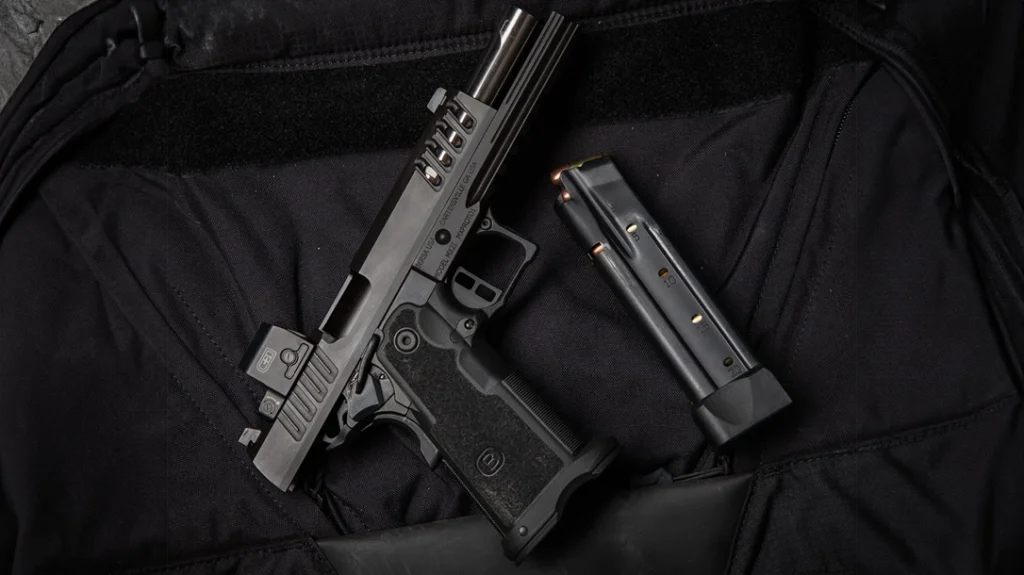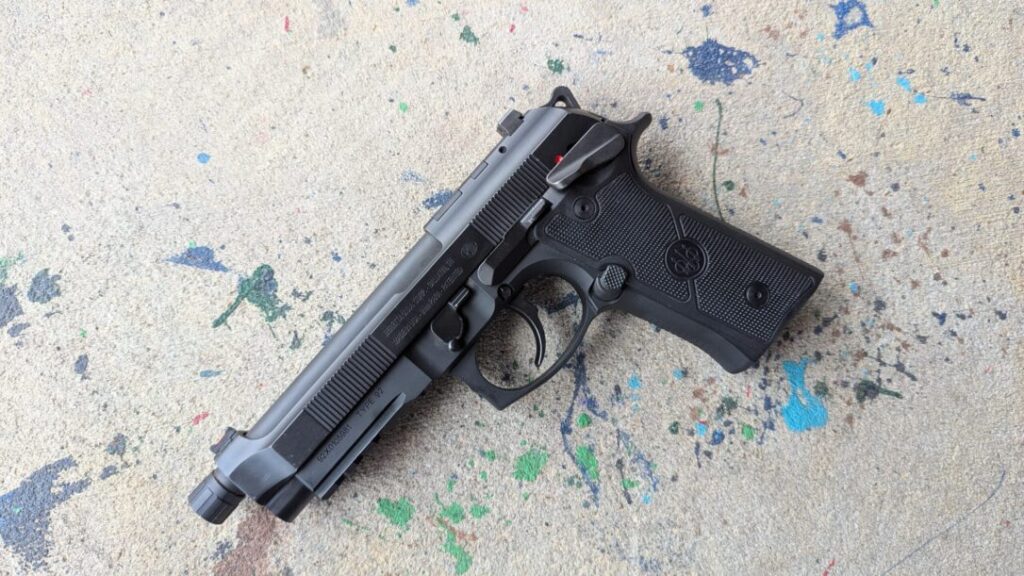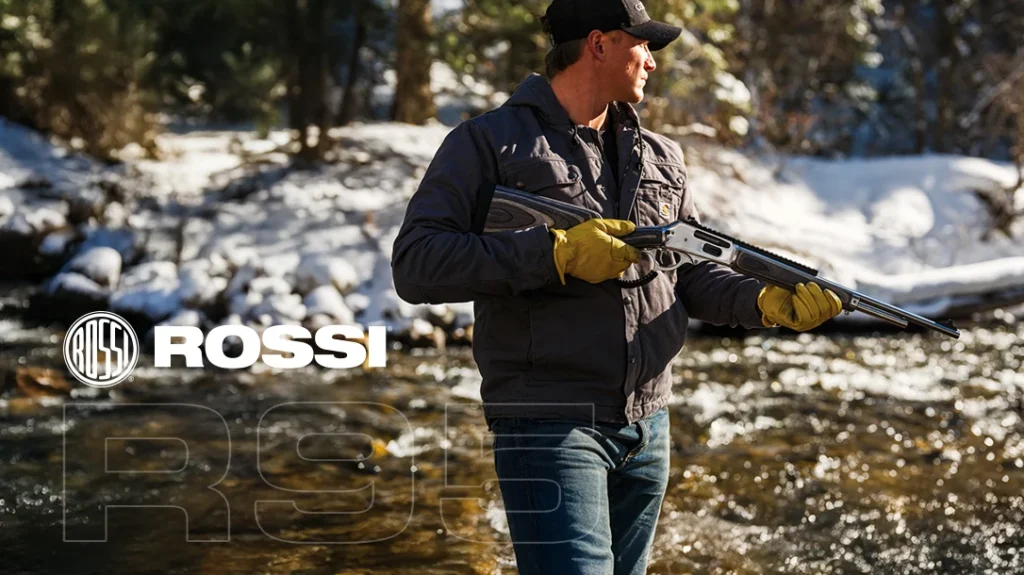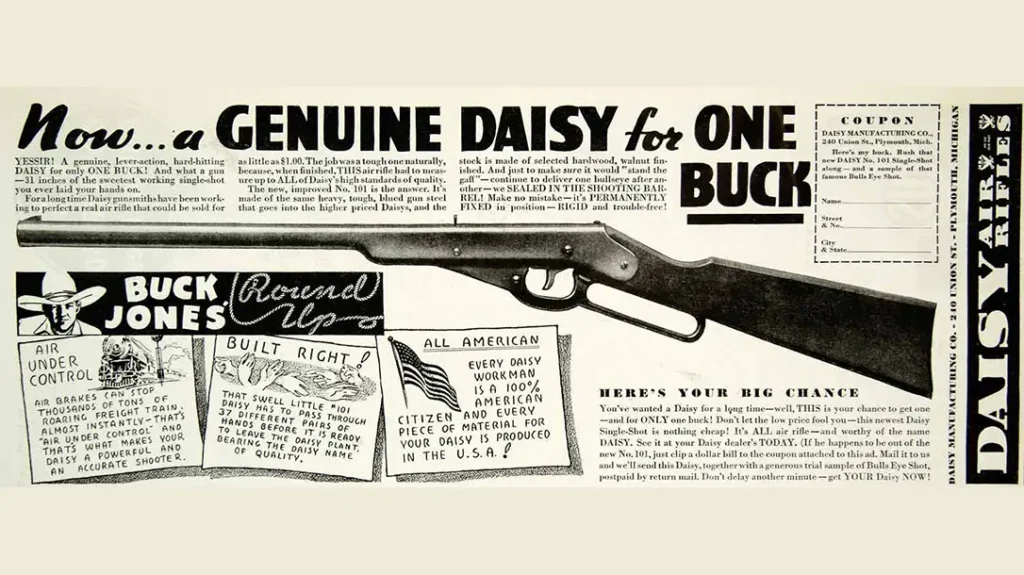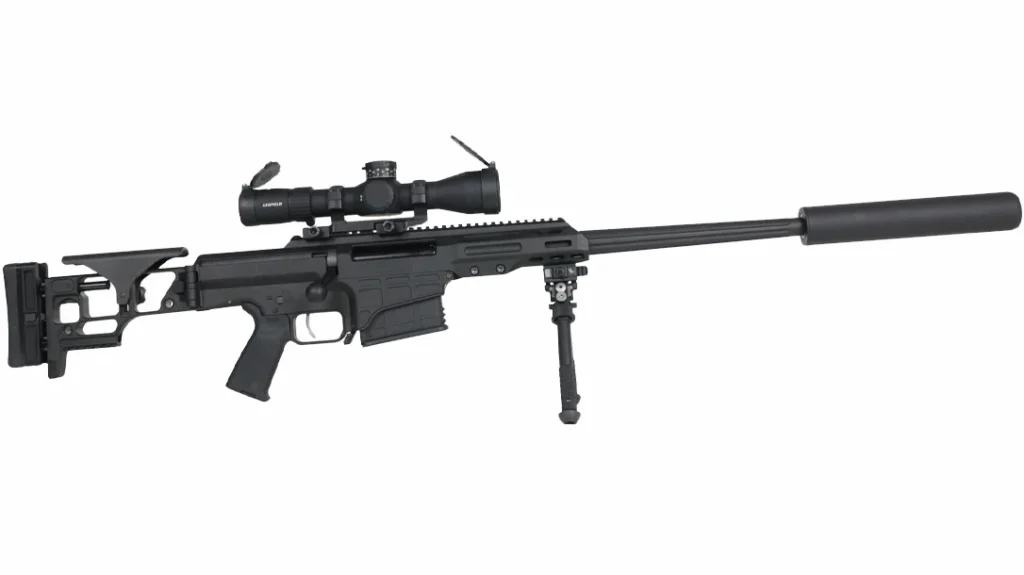The name Wilson Combat needs no introduction. In business since 1977, Bill Wilson and his talented group of gunsmiths have made Berryville, Ark., the center of the universe for many fans of the 1911 pistol.
Several years ago, during a writer’s event, I had the pleasure of spending two days at Wilson Combat. During a tour of the company’s facility, Ryan Wilson made a point of introducing us to Vic Tibbets, the manager of the custom shop. Vic and a select few gunsmiths are responsible for all of the custom builds. Vic is also responsible for building any order for a Supergrade 1911.
Advertisement — Continue Reading Below
For those who are not familiar with the Wilson Supergrade, it built in the “Supergrade Cell” by Wilson’s most experienced and skilled pistolsmiths. Each one is built by a single pistolsmith with no restrictions on time and effort. Tibbets will tell you that they are as close to perfection as is possible by human hands. Very few Supergrades are built in a year, and they immediately become collectables. However, some find their way to the real world and become working guns. This article is the story of one such pistol.
Bob’s Build
The subject of this article is a Tactical Supergrade Compact that was built for a customer in 2003. Due to the nature of the customer’s job, he wishes to remain anonymous. To keep things simple, I will call him “Bob.”
I spoke to Bob by phone to learn the history of this pistol. It turns out that Bob’s job takes him to many of the world’s hot spots. He said that while he depended on a rifle the majority of the time, the Tactical Supergrade Compact was always with him. It is also his primary carry pistol when he is home in the states. Other than that, I can’t tell you much more about Bob. However, the folks at Wilson Combat vouch for him, and that is good enough for me.
Advertisement — Continue Reading Below
Bob’s Tactical Supergrade Compact was built on one of Wilson’s compact carbon-steel frames. The frontstrap is cut high and, along with the mainspring housing, features 30-lpi checkering. The High-Ride Bullet Proof beavertail grip safety is precisely fitted and blended to the frame. Bob also ordered his Supergrade with an ambidextrous Bullet Proof thumb safety, which features a unique hammer pin that holds the right-side lever securely without using the right-side grip panel. As with all Bullet Proof parts, the beavertail and thumb safety are CNC-machined from a billet of steel. The Bullet Proof slide stop is also machined from solid bar stock, and the critical areas are reinforced. Wilson also installed its one-piece Bullet Proof magazine well, which is expertly blended into the frame.
The top end of Bob’s Supergrade includes a carbon-steel slide and a conical, 4-inch, match-grade, stainless steel barrel. A full-length guide rod is paired with a reverse plug. The top of the slide features 30-lpi serrations between the front and rear sights.
The rear sight is Wilson’s plain black Battlesight. Bill Wilson designed the Battlesight with a wide, deep U-shaped notch for optimal sighting in low-light conditions. The forward edge has a ledge for slide manipulations while the rear of the sight sports 40-lpi serrations to reduce glare. The rear of the slide itself has 40-lpi serrations to match those on the Battlesight. Interestingly, the pistol was originally fitted with a fiber-optic front sight. According to Wilson’s records, the purchase price for the pistol in 2003 was $5,045.
Advertisement — Continue Reading Below
Tactical Supergrade Compact Overhaul
In late 2016, after 14 years of constant carry, Bob sent his Tactical Supergrade Compact back to Wilson Combat for an overhaul. When he returned it, most of the original finish had been worn off from good honest carry. As the photos here show, the corners of the slide and most of the edges were worn down to the bare metal.
The pistol was assigned to one of the Supergrade Cell’s pistolsmiths, who completely disassembled the pistol and conducted a thorough inspection of each component. In reviewing the build sheet, I immediately noticed that none of the internal parts were replaced.
Advertisement — Continue Reading Below
Most of the work was done on the slide and frame. Careful hand-filing and polishing removed all of the nicks, dings and scratches. Any dings in the checkered frontstrap or mainspring housing were cleanly reshaped by hand. The same attention was given to the serrations on the top and rear of the slide. All of the external and internal parts were carefully inspected to ensure they were within specifications and then prepped for refinishing. Bob elected to replace the original sights with a set of Wilson’s three-dot tritium units.
Each step was undertaken with care to ensure that, when returned, Bob’s gun would be as good, if not better, than when it was brand new. The entire gun was then refinished with Wilson’s Armor-Tuff, a coating that was developed to provide a non-reflective finish with optimum corrosion protection and enhanced lubricity. The Tactical Supergrade Compact was given a black slide and a gray frame.
In the end, Bob’s Tactical Supergrade Compact was as good as new. The talented pistolsmith spent over 10 hours on the project, but it was well worth it. I hope you will take the time to really examine the before and after photographs provided by Wilson Combat. The photos reflect Wilson’s commitment to building—or in this case, rebuilding—the finest 1911 possible. And where is the pistol now? The last time I attempted to call Bob, his number went straight to voicemail. I can only guess that he was indisposed—as in, out of the country.
Advertisement — Continue Reading Below
If you are interested in a Supergrade 1911, full-sized, Commander and Compact models are available. Each is made to the customer’s individual specifications and is truly a work of art. To see all the options and models, visit Wilson’s website at wilsoncombat.com.
This article is from a previous issue of Ballistic Magazine. To order a copy, visit outdoorgroupstore.com.
